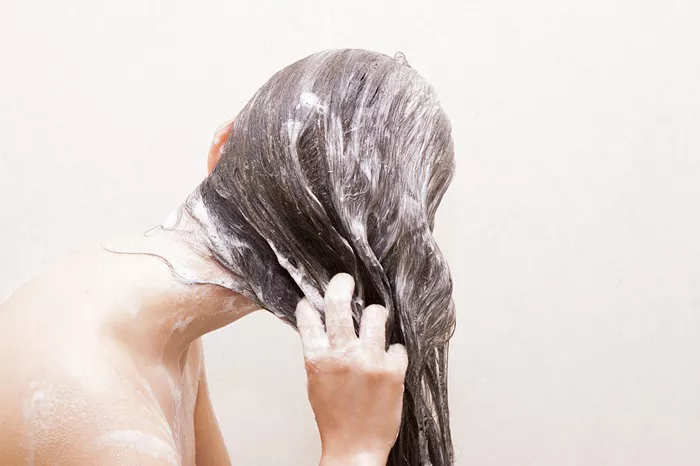Maintaining healthy, clean hair is a common concern for many people. One of the most debated topics in hair care is whether washing your hair every day makes it greasy. To address this question thoroughly, it’s essential to understand the relationship between washing frequency, oil production, and overall hair health. This article will explore how daily washing can impact your hair’s greasiness and provide insights into establishing an effective hair care routine.
Understanding Hair and Scalp Oil Production
The scalp produces natural oils called sebum. Sebum is crucial for keeping the hair and scalp moisturized and protected. It acts as a natural conditioner and has antibacterial properties. The amount of sebum produced varies from person to person and is influenced by factors such as genetics, hormonal changes, diet, and environmental conditions.
The Impact of Washing Frequency on Sebum Production
Daily Washing and Oil Production
When you wash your hair daily, you are stripping your scalp of its natural oils. This can trigger the sebaceous glands to produce more oil to compensate for the loss. Initially, this might make your hair feel cleaner, but over time, the increased oil production can lead to greasiness. This cycle can create a dependency where your scalp produces more oil because it is being frequently stripped away.
The Role of Shampoo in Oil Removal
Shampoos contain surfactants that are designed to remove dirt, oil, and product buildup. When used daily, these surfactants can disrupt the scalp’s natural balance. The overuse of shampoo can lead to excessive dryness and irritation, which may prompt the scalp to produce even more oil in response. This can result in a cycle of washing and oiliness that can be difficult to break.
Effects of Over-Washing on Hair Health
Dryness and Damage
Washing your hair too frequently can lead to dryness and damage. Shampooing strips away not only excess oil but also essential moisture. This can make your hair brittle and prone to breakage. Over time, the cumulative effect of daily washing can weaken your hair, making it look dull and lifeless.
Scalp Irritation
Frequent washing can also irritate the scalp. The chemicals in shampoos, combined with the mechanical action of washing, can lead to conditions such as dryness, flakiness, and itchiness. An irritated scalp may produce more oil as a defense mechanism, further contributing to the problem of greasiness.
SEE ALSO: Is It Healthy to Wet Your Hair Every Day?
Finding the Right Balance
Determining Your Hair Type
Understanding your hair type is crucial for establishing a suitable washing routine. People with oily hair may feel the need to wash daily, while those with dry or curly hair may find that washing less frequently works better. Assessing your hair’s needs and adjusting your routine accordingly can help maintain a healthy balance.
Using the Right Products
Choosing the right shampoo and conditioner is essential. Look for products that are suited to your hair type and needs. For oily hair, a clarifying shampoo might help control excess oil, but it should be used sparingly to avoid over-drying the scalp. For dry or damaged hair, moisturizing shampoos and conditioners can provide the necessary hydration without causing greasiness.
Implementing a Gradual Change
If you are used to washing your hair daily and want to transition to less frequent washing, do so gradually. Start by extending the time between washes by one day. This allows your scalp to adjust to the change in oil production without causing excessive greasiness or discomfort.
Alternative Methods for Managing Oil
Dry Shampoo
Dry shampoo can be a helpful tool for managing oil between washes. It absorbs excess oil and adds volume to the hair, making it look fresher. However, it should not be used as a substitute for regular washing but rather as a supplementary product to extend the time between washes.
Scalp Treatments
Incorporating scalp treatments into your routine can help manage oil production. Products containing ingredients like tea tree oil, salicylic acid, or witch hazel can help regulate sebum production and maintain a healthy scalp. Regular scalp massages can also promote circulation and balance oil production.
Diet and Lifestyle Considerations
Healthy Diet
A balanced diet can impact the health of your hair and scalp. Consuming foods rich in omega-3 fatty acids, vitamins, and minerals can support healthy oil production and overall hair health. Avoiding excessive consumption of greasy and sugary foods can also help regulate oil production.
Hydration
Staying hydrated is crucial for maintaining healthy skin and hair. Drinking plenty of water helps keep your scalp hydrated and can reduce the overproduction of sebum.
Hormonal Influences
Hormonal changes can significantly affect oil production. Conditions such as hormonal imbalances, puberty, and menstruation can lead to increased oiliness. If you suspect hormonal issues are affecting your hair, consult with a healthcare provider for appropriate advice and treatment options.
Conclusion
Washing your hair every day can lead to increased oil production, resulting in greasiness. The cycle of stripping away natural oils and compensating with additional sebum can create a challenging situation for maintaining balanced hair. By understanding your hair type, using appropriate products, and implementing gradual changes, you can achieve a healthier routine that minimizes greasiness while maintaining clean, vibrant hair. Managing oil production involves a holistic approach, including proper washing techniques, dietary considerations, and lifestyle adjustments. By finding the right balance, you can keep your hair looking and feeling its best.

